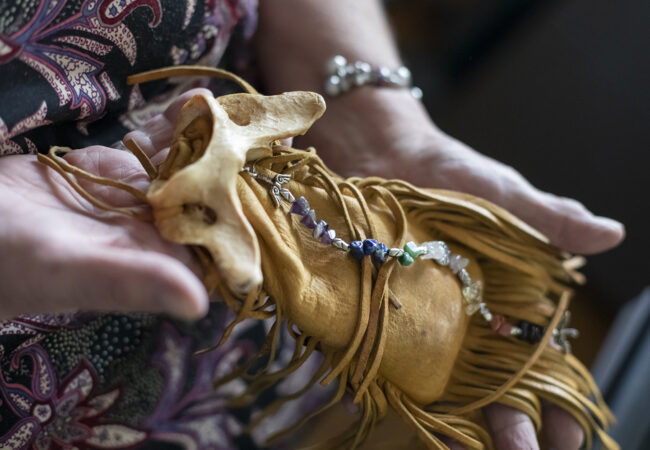It’s a simple fact that many countries are better at talking about children’s rights than implementing them.
“We hear a lot of rhetoric from leaders about the importance of young people,” says Tara Collins, a researcher at Toronto Metropolitan University’s School of Child and Youth Care. “But in so many ways, children and youth are made to feel as if they don’t matter.”
It’s a sad situation that Collins has come to know well. She has worked at universities across four continents during her career. Along the way, she has become a highly connected expert on the rights of children and youth, and today, she is principal investigator of the International and Canadian Child Rights Partnership (ICCRP) at TMU.
Supported by the Social Sciences and Humanities Research Council of Canada (SSHRC), the partnership was established after TMU held an international conference on children’s rights in 2015. At the heart of the partnership’s research is the belief that children’s participation in society is a human right.
The ICCRP’s work is conducted in the context of the United Nations Convention on the Rights of Children, which was adopted more than 30 years ago to protect children’s civil, political, economic, social, health and cultural rights. All UN member countries, apart from the United States, have ratified the treaty and are bound by international law to act in accordance with the principles of the convention.
Ignoring children’s perspectives leads to serious consequences, Collins says. For instance, Black and Indigenous children face discrimination in schools and are tremendously overrepresented in the Canadian child welfare system.
Consequently, the ICCRP is asking how intergenerational relationships can transcend current barriers to implementing children’s rights in research, policy and practice. Policy-makers and service providers can lose track of how their efforts affect young people and are not meaningfully engaging with them, often because they are unsure of how to engage with youth.
Challenging discriminatory worldviews
Through its current research, the partnership will share with organizations, practitioners and governments evidence, models and best practices for including young people’s perspectives to guide new policy and frame-works for child rights realization.
“Young people across our governance, working groups and case studies benefit from having platforms to contribute their knowledge and lived experiences and be respected,” says Collins. “We have an international and Canadian advisory committee with members from the ages of 14 to 92 years.”
Key policy areas that benefit include anti-violence, child rights education, child protection, international policies/conventions on child rights, evaluation and impact assessments, organizational governance and priorities, and early childhood education. “We see children as our research partners instead of our research subjects,” says Collins.
That spirit of equality and collaboration, she continues, is typically missing from discussions about children and what’s in their best interest. To remedy the situation, adults must fully embrace their role as implementors of children’s rights in partnership with children and youth, challenge discriminatory worldviews and address power imbalances that disadvantage children and youth, especially those from racialized communities and low-income countries.
Doing so will increase children’s participation in society, and in turn, positively affect the quality of their lives, says Collins. “When we create space for children and give them the support they need, they will say what they need to say, rather than what adults want to hear.”






